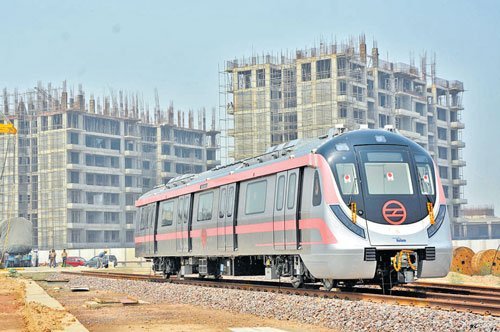Key Points:
- Prime Minister Narendra Modi will on December 28 (Monday) flag off India’s first-ever fully-automated driverless train service.
- The DMRC will gift the driverless train service to the residents of the national capital three days after it completes 18 years of operations on December 25.
New Delhi: In a technological leap, Prime Minister Narendra Modi will on December 28 (Monday) flag off India’s first-ever fully-automated driverless train service. The driverless train will be launched on Delhi Metro’s 37-kilometre-long Magenta Line which connects Janakpuri West in Delhi to Botanical Garden in Noida, Uttar Pradesh.
The Delhi Metro Rail Corporation (DMRC) made this announcement on Thursday evening.
Further, the PM will also launch on the same day a fully-operational National Common Mobility Card (NCMC) for travel on the Airport Express Line of Delhi Metro, the DMRC stated.
The DMRC will gift the driverless train service to the residents of the national capital three days after it completes 18 years of operations on December 25. It was on December 25, 2002 that the then prime minister late Atal Bihari Vajpayee had launched the first Delhi Metro service in the capital.
Delhi Metro was the first modern metro service which India had back then, apart from the existing Kolkata Metro whose services had started on October 24, 1984.
The Ministry of Housing and Urban has amended the Metro Railways General Rules, 2015, allow to allow driverless train operations.
Driverless trains will be made a reality using the hi-tech signalling technology which is known as the communication-based train control (CBTC).
The DMRC is already using driverless train technology in trains which operate on Magenta Line (Janakpuri West-Botanical Garden) and Pink Line (Majlis Park-Shiv Vihar). However, at present, these trains are being operated with a driver present in the cabin.
Following the December 28 launch, there will be no need for a driver to be present in the cabin for the train to start and operate.
So far, Delhi Metro was in the process of conducting trials to make sure trains are able to switch to driverless operations smoothly and safely.

